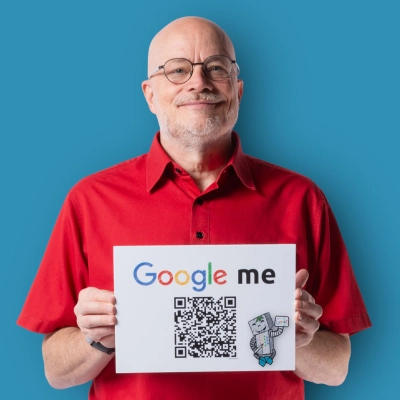25 Common SEO Misconceptions and the Real Impact They Have
SEO misconceptions can significantly impact your website's performance. This article debunks common SEO myths and reveals their true effects on your online presence. Drawing from expert insights, it provides clarity on crucial SEO strategies that can make or break your digital success.
- Quality Over Quantity in Content Creation
- Pagination Remains Beneficial for SEO
- Strategic Updates Trump Constant Tweaks
- Brand-Focused Domains Outperform Exact-Match
- Integrate SEO and Web Design Early
- Linking to Competitors Can Build Credibility
- SEO Remains Relevant Despite AI Advancements
- Backlinks Fuel SEO Success
- SEO Fundamentals Enhance GEO Effectiveness
- User-Focused Content Trumps Keyword Stuffing
- Comprehensive Content Outperforms Keyword Density
- Keyword Research Drives SEO Results
- Internal Search Optimization Boosts Overall SEO
- Brand Mentions Complement Traditional Link Building
- User-Centric SEO Yields Better Results
- Target Intent-Driven Keywords for Conversions
- Well-Crafted Title Tags Still Impact Performance
- SEO Requires Ongoing Effort and Adaptation
- Geotagging Photos Doesn't Affect SEO Rankings
- Disavowing Toxic Backlinks Can Restore Rankings
- Lower SERP Positions Can Generate Leads
- Problem-Solving Content Outperforms High-Volume Keywords
- Concise Content Can Outrank Longer Pieces
- Nofollow Links Provide SEO Value
- Quality Backlinks Outweigh Quantity
Quality Over Quantity in Content Creation
The Biggest SEO Misconception I've Debunked: "More Content Always Equals Better Rankings"
The most damaging misconception I've encountered is the belief that publishing more content automatically leads to better SEO results. I've seen countless businesses create hundreds of generic blog posts thinking volume equals visibility, when the opposite is often true.
My wake-up call came when analyzing a client who was publishing 5-10 blog posts weekly with no ranking improvements. Their content was thin, repetitive, and provided no unique value. Meanwhile, we had another client publishing one comprehensive guide monthly who was dominating search results in their niche.
The real-world example that changed my entire approach happened with our own website. We were publishing frequent Friday SEO Tips, but they were becoming formulaic and generic. Then Google's Helpful Content Update hit, and our rankings actually dropped despite publishing consistently. This forced me to completely rethink our content strategy.
The breakthrough came when we shifted to our Micro SEO methodology — creating fewer, but significantly more valuable pieces of content. Instead of five generic SEO tips per month, we started creating one comprehensive guide that genuinely helped businesses solve specific problems. Our "What Is SEO in 2025?" guide took weeks to research and write, but it now ranks #1 for multiple competitive keywords.
The measurable impact was dramatic. Our organic traffic increased 170% year-over-year, but more importantly, our conversion rate from organic traffic jumped 340% because people were finding genuinely useful content that established our expertise. Quality content that deserves to rank will always outperform quantity content created just to fill publishing calendars.
This misconception costs businesses thousands in wasted content creation while actually hurting their search visibility. Google's algorithms increasingly prioritize content that demonstrates genuine expertise and provides unique value over content created purely for SEO purposes.
The lesson learned is that our human-driven, AI-assisted approach should focus on creating content worthy of citation and reference, not just content designed to target keywords. When you create something genuinely valuable, rankings and traffic follow naturally.

Pagination Remains Beneficial for SEO
One misconception I frequently encounter is the idea that pagination is unnecessary. In my experience, this is not true.
Google did deprecate pagination tags a few years ago, but since then, Google itself has reintroduced pagination.
In my own anecdotal testing, pagination is beneficial for SEO as it helps with crawl depth. This is particularly important on large websites where you may have 10, 20, or even 30+ pages in a series. Consider a bookstore, for example. Their "fantasy" section on their website would be extensive.
Pagination, and more specifically, mid-point pagination helps crawlers better discover pages. Google treats paginated pages as unique URLs, so you want them discovered, especially when important products may be situated many levels deep.
Mid-point pagination is when you add anchored links to paginated pages that are between two defined values. For example:
1, 2, 3, 10, 18, 19, 20
What the link to page=10 does is dramatically reduce the crawl depth. This allows every paginated page to be discoverable within a few steps.

Strategic Updates Trump Constant Tweaks
A lot of people think you need to constantly tweak your website—"show Google you're active." I used to believe that too, and it led to this hamster-wheel approach where I was making tiny updates every week without any real strategy. The truth is, Google doesn't reward busywork; it rewards value.
One example that sticks with me is a client who had been making constant micro-updates to their blog posts for over a year. Their traffic was flat. When we stopped the drip-feed changes and instead invested in one substantial, well-researched content overhaul every quarter, their rankings jumped within weeks. The bigger updates actually gave Google new context and depth to index—something the small tweaks never accomplished.
It taught me that SEO isn't about looking busy; it's about being useful. The web is crowded with sites doing surface-level changes just to stay "fresh," but search engines care more about relevance, completeness, and satisfying search intent than whether you swapped a header last Tuesday. Sometimes the best move is to slow down, plan bigger improvements, and give your content the weight it deserves.

Brand-Focused Domains Outperform Exact-Match
A common SEO misconception I've personally debunked is that exact-match domain names (like www.sydneypainter.com.au) are superior for ranking in search results. Early in my career, I invested heavily in keyword-based domains, thinking they would give my websites an automatic advantage in search rankings. What I discovered was that while these domains initially helped with certain keywords, they significantly limited our long-term branding potential and created a narrow perception of our service offerings. The real impact became clear when we transitioned to brand-focused domain names, which allowed us to build stronger brand recognition while maintaining search visibility through proper SEO techniques. We now redirect our old keyword domains to our branded websites, giving us the best of both worlds without sacrificing our unique brand identity.

Integrate SEO and Web Design Early
One shared myth is that web design and SEO can be addressed separately. Both need to be integrated from the project's conception stage. Search engines evaluate user experience aspects such as load time, mobile usability, and navigation that are affected by design choices.
When we created a website for a tech startup, we gave prime importance to SEO right from the wireframe phase. We ensured a logical heading structure, mobile-first design, clean code, fast load times, and strategically placed content areas. Instead of retrofitting optimization later, SEO was built into every decision.
After launch, the site performed well immediately, organic traffic grew, bounce rates fell, and quality inquiries came in. This early momentum would not have been possible if SEO had been treated as a separate phase.
Design and SEO are two sides of the same coin in today's digital landscape. If they are treated as isolated silos, measurable performance benefits are left untapped.

Linking to Competitors Can Build Credibility
Linking to organic search competitors is not a bad SEO practice. Understandably, many fear that doing so could push competitor rankings higher while pulling theirs down. However, SEO is not only about rankings, nor is it solely about outmaneuvering competitors. When the Repulinks team and I tried this counterintuitive approach, it further proved that SEO is also about building real credibility with real people.
We once uncovered a low-hanging keyword opportunity for a client of ours in the roofing niche, one that also hit a deep pain point. A closer look at the SERPs revealed a fractured intent. All sorts of formats, from videos and short clips to articles and forum threads, were ranking on the first page. That told us one thing: searchers may be bouncing from one format to another, likely because each source was either too specific to be relevant to their case or too broad to be useful.
To address that gap, we built a sort of 'mega' guide that answered as many queries and scenarios as possible, embedding and linking to the best videos and articles from those organic competitors for deeper dives.
Simply put, we created a hub where searchers and potential customers could see the big picture while still having the option to go deeper. All without opening a new tab, searching the keyword again, and sorting through results. Time and again, we've seen articles like this become backlink magnets that attract both high-authority websites and local news outlets.
Always remember that not all organic competitors are business competitors. For local businesses, many of the sites ranking alongside you may not even serve your market, which makes them valuable resources you can reference rather than compete with. And who knows, those relationships could even open doors to productive collaborations down the line.

SEO Remains Relevant Despite AI Advancements
A common misconception I hear is that SEO is no longer relevant with AI and zero-click searches. In my experience, that couldn't be further from the truth. I'm a one-person service business, and my website has already received over 31,000 visitors from Google this year — enough to keep me fully booked without any outreach. While my organic traffic has slightly dropped, I'm continuing my SEO strategy to maintain my rankings and continue reaching my target audience.

Backlinks Fuel SEO Success
Here's my hot take: backlinks are paramount.
People proclaim "content is king" and "E-E-A-T is important," but, to be honest, you can go quite far with subpar content and absolutely no E-E-A-T if you have authority. Let's put this in other terms: let's imagine SEO as a road trip, and our ranking as the destination... Content, E-E-A-T, and technical aspects are your car, and links/authority are the fuel. You can have the best car in the world, and you'll get nowhere without fuel. On the other hand, you could get a beat-up 2009 Honda Civic with 200,000 miles on it, and I would be willing to bet you could get another 50,000 miles out of it with enough fuel.
So yes, content absolutely matters, but you need the right fuel to reach your destination.

SEO Fundamentals Enhance GEO Effectiveness
Some say GEO made SEO irrelevant, but SEO is still the core.
In my experience, that's not the case. GEO adds to SEO; it doesn't replace it. Strong visibility online still comes from solid SEO fundamentals. The focus should stay on earning strong links, giving visitors a smooth experience, and keeping the site technically sound.
The idea behind GEO is to make answers easy for AI to read, though on its own it falls short.
I saw a client shift everything to GEO formatting, which got them visibility in AI, but it cost them a big chunk of search traffic. Because they left out the essentials of SEO, their presence in search weakened.
Once we merged traditional SEO with GEO tactics, they saw things level out. In three months, they won back the traffic they had lost. They gained 25% more visibility, which proves that SEO works best when paired with GEO.

User-Focused Content Trumps Keyword Stuffing
Good Day,
A very large SEO myth is that stuffing your pages with keywords will increase your rankings, which isn't true. In fact, it can damage both your SEO and user trust. I worked on a site that had content heavily filled with what I would call keyword filler. We replaced it with useful, well-structured content, and what we saw was that traffic went up because users stayed and engaged. My advice is to write for humans first and then make the necessary changes to please the search engines.
If you decide to use this quote, I'd love to stay connected! Feel free to reach me at spencergarret_fernandez@seoechelon.com

Comprehensive Content Outperforms Keyword Density
One of the most common SEO misconceptions I've encountered is the idea that keyword density is the most important factor for ranking. Early on, I observed businesses obsessing over achieving a specific percentage of keyword usage in their content, believing that repeating a term enough times would guarantee higher rankings. In practice, this often led to awkward, repetitive copy that harmed user experience and diminished trust.
Through my own work in self-storage SEO, I've seen firsthand that focusing too much on density overlooks what truly matters: search intent and topical relevance. For example, I worked with a storage operator who had crammed "storage units in [city]" into every heading and paragraph on their location pages. Despite this, they weren't outranking competitors. After analyzing their content, I realized they weren't addressing related queries like "climate-controlled storage," "RV storage," or "short-term vs long-term rentals," which their audience was actively searching for.
We restructured the page to cover these topics naturally, added FAQs, and improved internal linking. Within a few months, their organic traffic nearly doubled, not because we adjusted density but because we aligned the content more closely with what customers wanted to know. The real impact was stronger rankings across multiple long-tail keywords, more page views per session, and higher conversions.
The lesson is that search engines reward comprehensive, user-focused content rather than formulaic keyword repetition. If you build content around user intent and provide real value, the rankings and traffic will follow naturally.

Keyword Research Drives SEO Results
One of the misconceptions that I have debunked is that SEO does not require keyword research. Keyword research is an important part of SEO, helping you find search terms that can drive results.
Keyword research does not simply mean using the search terms your clients are using to rank. Keyword research involves identifying broad keywords that are relevant to the industry, products, or services. It also includes identifying the main keywords, long-tail keywords, and LSI keywords.
You should use a keyword research tool and search based on data and trends. You should perform keyword research to identify the changing search trends. Using the search terms the audience is using to find businesses like yours can help your website rank higher.
For example, by finding the right keywords, you can understand what the users are searching for. Using the relevant keywords in your content can help to rank higher. It is more likely to drive more qualified traffic to your website.
Focusing on less competitive and high search volume keywords can help you rank for relevant searches. Long-tail keywords have a low search volume but are easy to rank for and drive traffic. Using the right keywords can attract users who are genuinely interested in your offerings.

Internal Search Optimization Boosts Overall SEO
A huge misconception is that SEO is entirely external-facing, ignoring internal search capabilities. A large marketplace client struggled with site search delivering poor results, frustrating customers. We optimized their internal search algorithm and category structure, which improved on-site engagement and conversions. External rankings also improved because better engagement reduced pogo-sticking. This showed how internal and external search health are linked.
We tied analytics between internal queries and organic keyword gaps. This revealed new content opportunities that fed both SEO and user experience improvements. Click-through and conversion rates rose across product categories after changes. The client now regularly audits internal search data to guide content creation. They've made it a cornerstone of their SEO feedback loop.
Brand Mentions Complement Traditional Link Building
One big misconception in SEO is that only blue hyperlinks matter. While blue hyperlinks remain the single biggest credibility signal for a website, linkless links (brand mentions without URLs) are a significant add-on and can shift entire markets - but only if the brand already has a powerful online presence.
I've seen it firsthand: Kalicube's client Ubigi beat T-Mobile, and Aquarelle beat Interflora in incredibly competitive spaces by ensuring their brand, product, and CEO were widely and consistently cited across trusted sources (articles, podcasts, press, industry sites). Both Ubigi and Aquarelle were at a disadvantage in terms of links. Solid, relevant, and extensive mentions bridged the gap.
Citations are less powerful than links, but Kalicube's work with Ubigi and Aquarelle demonstrates that well-placed mentions are not far behind in the AI Era.
The lesson for link builders? Hunt mentions as well as links.

User-Centric SEO Yields Better Results
The belief that SEO is purely about pleasing algorithms and not people is still too common. A fintech client prioritized search engine guidelines over user needs, creating sterile and overly optimized content. Engagement metrics were low, and organic leads stalled. We reoriented the strategy to serve human readers first, integrating emotional and practical value into every page. Search performance rebounded alongside stronger conversion metrics.
We balanced optimization with storytelling, case studies, and clear next steps for visitors. This made pages both indexable and compelling to read. Returning visitors increased as trust in the content grew. The client learned that satisfying user intent is the surest way to satisfy algorithms long-term. This philosophy now underpins every optimization decision they make.

Target Intent-Driven Keywords for Conversions
One common SEO misconception I've encountered repeatedly is the idea that SEO is all about ranking #1.
In reality, it's about driving the right traffic that converts, not just chasing vanity positions.
I've seen sites rank #1 for high-volume keywords that bring in loads of traffic—but zero leads or sales. On the flip side, we've targeted lower-volume, long-tail keywords with strong intent and seen far better ROI.
One example that stands out: a client was obsessed with ranking for a broad, competitive term. We achieved it, but the bounce rate was high, and conversions barely moved.
When we shifted focus to specific service-based queries aligned with what their actual customers were searching for, conversions shot up.
The takeaway? Rankings mean nothing without relevance and intent behind them. It's better to be found by the right people than by everyone.
Well-Crafted Title Tags Still Impact Performance
A common misconception I've had to debunk repeatedly is that title tags no longer matter since Google often rewrites them. Some clients assumed this meant optimizing titles wasn't worth the effort anymore. However, in practice, I've found the opposite to be true—title tags still play a key role in click-through rate and user perception, even if Google sometimes rewrites them.
For a SaaS client, we ran a test across 40 key landing pages. The original titles were loaded with buzzwords and non-qualifiable claims like "World's Best" or "Fastest Platform." Google often rewrote these to more factual, simplified versions, which lost the client's intended positioning. We shifted to more precise, benefit-driven titles that reflected actual content and user intent.
As a result, we saw Google rewriting titles far less frequently. More importantly, we recorded a noticeable lift in organic click-through rates—on average, about 12 percent across the test group. This directly challenged the idea that title tags no longer influence performance.
The key takeaway is that when title tags are clear, relevant, and grounded in user intent, they're still a powerful asset. Google rewards accuracy and alignment, not hype.

SEO Requires Ongoing Effort and Adaptation
One persistent SEO misconception I've had to debunk repeatedly—both with clients and fellow marketers—is the belief that SEO is a "one-and-done" project. You optimize a site once, hit publish, and wait for the traffic to roll in permanently. This mindset is not just outdated; it's actively harmful in 2025's landscape.
I saw this play out painfully with a client in the home services space. They'd invested in a comprehensive SEO overhaul in early 2024: technical fixes, keyword-rich content, and a backlink campaign. By March, they were ranking well for terms like "emergency plumbing repair" and "water heater installation," and organic traffic spiked by 40%. Satisfied, they paused all SEO efforts—no fresh content, no link building, no technical monitoring.
Then Google's August 2024 Core Update rolled out, which specifically targeted content freshness and user engagement. Their rankings plummeted almost overnight; key pages dropped from positions 1-3 to page 2 or lower. Traffic cratered by 35% in two weeks, and lead volume followed.
Why? Competitors were consistently publishing updated cost guides, new case studies, and refreshed service pages, while their now-stale content—some pricing data was 16 months old—no longer satisfied searchers or algorithms. The impact was tangible: a projected $120K in lost revenue over the next quarter.
It took us three months of consistent, sustained work—refreshing old posts, adding new FAQs based on voice search trends, and fixing mobile UX issues that had crept in—to recover. The experience underscored that SEO isn't a project with an end date; it's an ongoing operational discipline. Google's relentless updates (like the 2024 Freshness boost) and shifting user expectations mean you either evolve with the ecosystem or get buried by it.

Geotagging Photos Doesn't Affect SEO Rankings
Many businesses have heard the claim that adding GPS location data (geotags) to photos for a Google Business Profile or website will help search rankings. While it sounds logical, research shows that geotagging has no direct impact on SEO or local rankings.
1. Google Removes the Data - When you upload a photo to Google Business Profile, Google automatically strips out all EXIF data, including GPS coordinates. So even if you add it, it won't be used.
2. Tests Show No Effect - Agencies like Whitespark have run controlled experiments. They found no improvement in Google Maps or local search rankings from uploading geotagged photos.
3. Google Uses Better Signals - Google already knows your location from your business info, website content, and other verified data. Photo metadata is unnecessary.
The bottom line is geotagging photos is useless and a waste of time.

Disavowing Toxic Backlinks Can Restore Rankings
One of the common misconceptions in SEO is that "disavowing backlinks is dangerous and doesn't work." This is not always true.
I had a client in 2024 who experienced a Negative SEO Attack: one of their large, corporate competitors had someone build over 500 spammy/toxic backlinks to their website in less than 30 days. This triggered Google into thinking that my client was building backlinks using black hat tactics (which wasn't true), and seemingly overnight, their lead volume dried up. After signing up with our agency, we were able to disavow those toxic backlinks and restore their keyword rankings, lead flow, and DR/AS score.

Lower SERP Positions Can Generate Leads
I enjoy correcting the false belief that positions outside the top 3 in Search Engine Results Pages (SERPs) receive no website traffic. This is not true. I have observed clients who rank between positions 8 and 12 for core service keywords continue to receive 3 to 5 monthly leads. The number of leads may seem small, but it represents actual business opportunities for boutique agencies and B2B service providers who do not need to spend five-figure amounts on SEO.
The steady presence of a business in search results can generate enough revenue to sustain operations, even if it does not lead to massive visibility like Clutch.co or DesignRush. Sometimes steady, modest visibility pays the bills just fine.

Problem-Solving Content Outperforms High-Volume Keywords
A common SEO myth is that keyword tools tell the full story. They don't. I've spent the last five years helping e-commerce brands grow by targeting real purchase intent, not just big search volume. One blog post we wrote, "How to Choose the Best [product]," looked low-volume in tools but ended up driving 2.62% of total revenue. Problem-solving content like that almost always outperforms broader topics. We publish first, then check Search Console and GA4 to see what's actually pulling in qualified traffic.

Concise Content Can Outrank Longer Pieces
A common SEO misconception I've debunked is that long-form content is always superior. Many believe that to rank, an article must be over 2,000 words. We've proven this wrong by outranking much longer pieces with concise, well-structured content that directly answers the user's query. This showed us that value and user experience, not word count, are what really drive SEO performance.
Nofollow Links Provide SEO Value
A lot of people think only dofollow links matter. From my experience, that's not true. I've seen nofollow links from big websites drive traffic, build trust, and even help rankings over time. Chasing only dofollows means you're leaving real value on the table.
Quality Backlinks Outweigh Quantity
One common SEO misconception I have encountered is the idea that backlinks from any website will automatically improve your search rankings. Early on, I believed that the more backlinks I could get, regardless of the source, the better my site would perform. I spent time and effort acquiring links from low-quality directories and unrelated websites. However, I soon realized this approach did not lead to better rankings and sometimes even hurt my site's credibility with search engines.
After focusing on building backlinks from relevant, authoritative sources through genuine relationships and quality content, I saw a significant improvement. For example, a page that had struggled to rank in the top ten moved up to the top five after earning links from respected industry blogs and news sites. This experience taught me that the quality and relevance of backlinks matter far more than quantity, shaping how I approach SEO strategies today.






